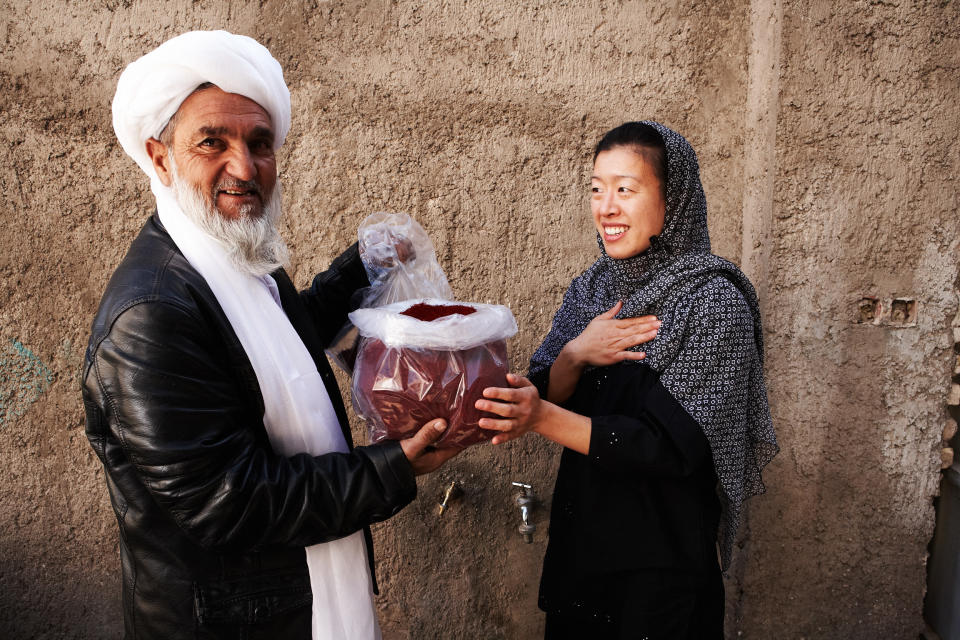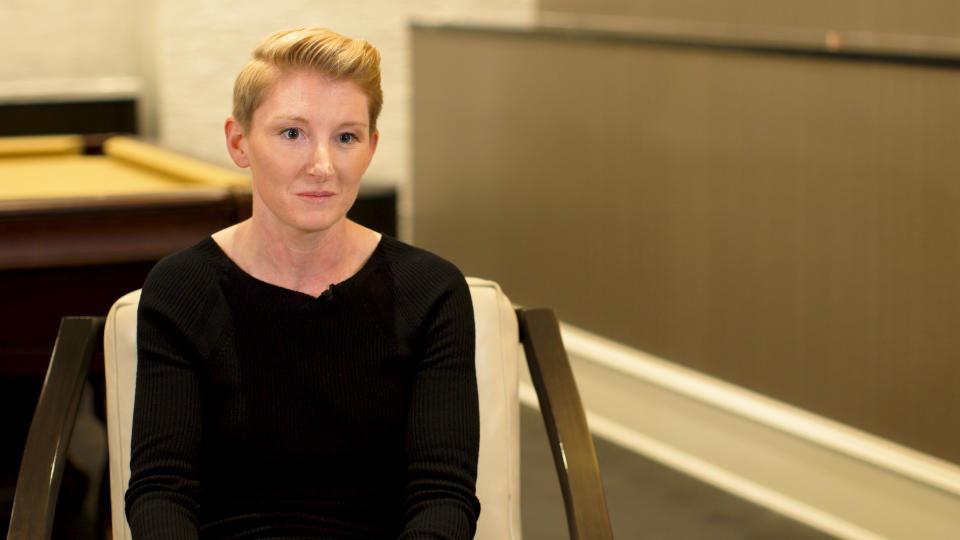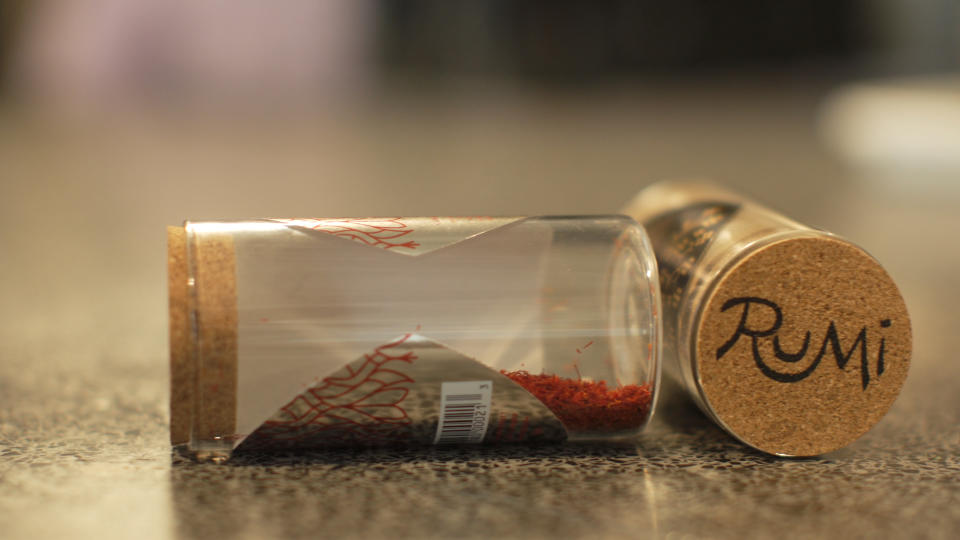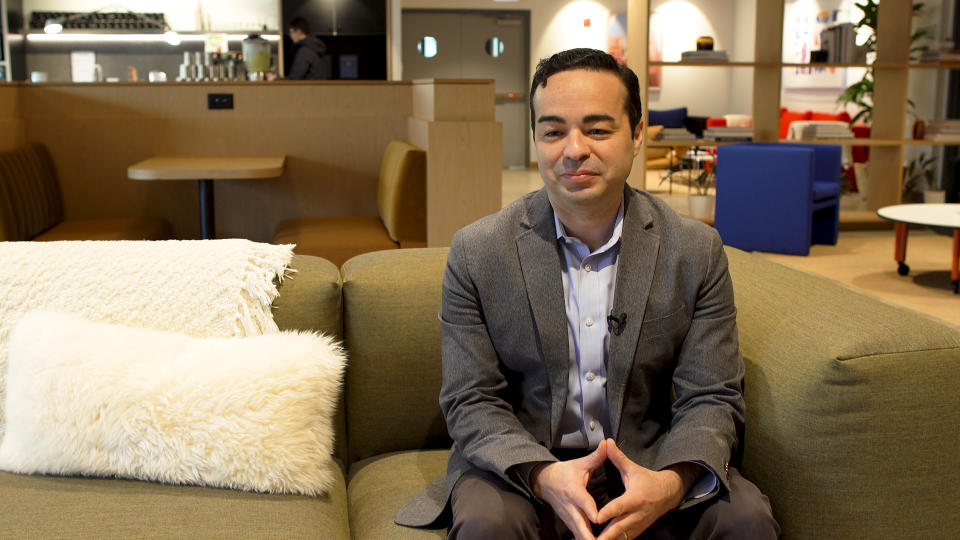'Drop by drop': How a trio of former Army engineer officers created an Afghan spice business
They once swept for roadside bombs and went on night raids while serving in Afghanistan. Now this trio of former Army engineer officers are bringing a new kind of peace to the country by boosting the economic fortunes of the farmers and women living there.
Emily Miller, Kim Jung, and Keith Alaniz in 2014 launched Rumi Spice, a mission-based, for-profit business that aimed to distribute saffron farmed and harvested in Afghanistan to sell on the international market.
The company — which is named after the 13th-century Persian poet, Jalal al-Din Rumi – now supplies the spice to Michelin star restaurants, meal-kit services, and Whole Foods, and shows that a do-good business can also thrive at the same time.

“Our favorite saying when times got tough was: ‘Drop by drop, a river is made,’ which is an Afghan proverb,’” Miller said. “And I think that was just a reminder to us to keep going, don't give up when times get tough.”
‘Part of something greater than myself’
Alaniz signed up for the Army at age 17, at a time when he was a self-described “angsty teen looking for something to do” and a way to pay for college. That was two years before 9/11.
“That really changed the whole reason why I was in the military,” he said. “I was there to serve.”
Sept. 11 had a similar impact on Miller, who was in high school when the attacks occurred. “I always had an urge to serve after that happened. I knew that's what I wanted to do,” she said.

Jung wanted to be part of the Army’s higher calling. “I wanted to be part of something greater than myself,” she said. “I knew that I was going to be part of this core of people who really wanted to serve their country.”
‘Frustrated with the endless cycle of violence’
Miller and Jung first met at West Point, where they graduated in 2008. They both were deployed to Afghanistan at the same time. That’s when Jung was part of a team looking for bombs and Miller accompanied special ops teams on raids.
“We would just come back at the end of the night and we would talk on the phone about our day,” Miller said. “And I think we were a little frustrated with the endless cycle of violence we were seeing.”
Jung and Alaniz met later in 2012 when they both were sent to New York following Superstorm Sandy to pump water out of flooded tunnels. Alaniz described the experience as “a really tough mission and a really interesting place to get to know someone.”

While Jung and Miller both enrolled in business school at Harvard, Alaniz returned to Afghanistan on multiple deployments as part of a program that trains Defense Department experts in Afghan culture, the root cause of counterinsurgency, and the economics of the country.
In a Skype conversation one evening with Jung and Miller, he told them about the Afghan farmers’ frustrations trying to reach an international market with their saffron, one of the world’s most valuable spices.
“And that kind of gave us the initial idea that maybe we could actually make this work,” Miller said. “And that was our first inkling of Rumi Spice.”
‘Money isn't everything’
Jung was the visionary, big-picture person. Miller was the detailed, operations and supply chain person. And Alaniz, the “finance guru” according to Miller, cultivated the relationships with the Afghan farmers.
To get the company off the ground, the founders each put in a big chunk of their own savings. Jung and Miller worked full-time for the company at a low salary. Alaniz, who was married and expecting a child, held another full-time job and worked at night on Rumi Spice. When he finally came onboard full-time, he took a 40% pay cut.
“At the end of the day, money isn't everything as long as we can pay the bills,” Alaniz said. “Working on something that you're passionate about is more important.”

They ran a Kickstarter campaign, raising $32,000. The three also packaged and distributed the first saffron products themselves. They sold the spice at farmer’s markets and engaged chefs, restaurateurs, and even people who loved to cook at home.
“Getting a really early community who loves your product, knows how to use saffron, and supports your social mission was so important,” Jung said.
It was also important that Rumi Spice was not run as a nonprofit.
“We felt that the only way for this to be long-term sustainable is if it’s for profit, and it's not a handout,” Alaniz said. “We thought that there was a business proposition for doing business in Afghanistan, and that we could do it profitably.”
‘We're simply just trading with farmers’
In the first year, Rumi Spice sold 30 kilograms of saffron, Jung said. The next year, it was 100 kilograms. The company got another boost when the three founders were invited on the television show, “Shark Tank,” where company owners pitch their products in hopes of convincing one or more of the investors to back their product.
Mark Cuban, one of the show’s hosts, ended up investing in the enterprise.
The trio also got better at pitching their product, finding investors who were interested in backing veteran-owned businesses. They also had to convince investors that doing business in Afghanistan, known for ongoing wars and opium, was a safe bet.
“Truth be told, we weren't doing anything that hasn't been done for thousands of years. We're simply just trading with farmers,” Alaniz said. “It took a lot of talking to people, a lot of encouraging them and letting them know that this is not an insurmountable risk to work in Afghanistan. It was tough.”

Now the company works with more than 300 Afghan farmers and employs nearly 1,900 women who hand harvest the flowers to make saffron. Rumi Spice also raised a Series A round of funding to the tune of $2.5 million.
“That's really the first substantial raise that we've had outside of seed and angel investing,” Alaniz said. “That's really given us the legs to become a business that has an opportunity to scale profitably.”
The company has hired a staff and a full-time CEO who recently took over for Alaniz. It also began selling Afghan cumin in November.
‘Where the next adventure is’
All three have now moved to more passive roles with the thriving company. After a successful CEO transition, Keith remains a company board member while shifting to business consulting.
“Right now, I'm trying to figure out exactly what I want to do... and see where the next adventure is,” he said. “I obviously have the entrepreneurial bug in me, so [I am] looking at other opportunities.”

Jung and Miller are still stakeholders in the company, but have also moved on professionally. Miller works for the Commerce Department, helping to foster innovation, entrepreneurship, and funding of small businesses nationwide. Jung has gone back to school, studying mechanical engineering.
Nevertheless, Rumi is not far behind.
“My personal relationship with Rumi will always be the same. It's still my baby,” Jung said. “Rumi will always remain in my heart as something I'm really proud of.”
Janna is an editor for Yahoo Finance. Follow her on Twitter @JannaHerron.
Read more:
Retirement expert: ‘40% of folks are going to literally run out of money’
Best countries to retire? U.S. doesn't make top 10, study says
Read the latest financial and business news from Yahoo Finance
Follow Yahoo Finance on Twitter, Facebook, Instagram, Flipboard, SmartNews, LinkedIn, YouTube, and reddit.
